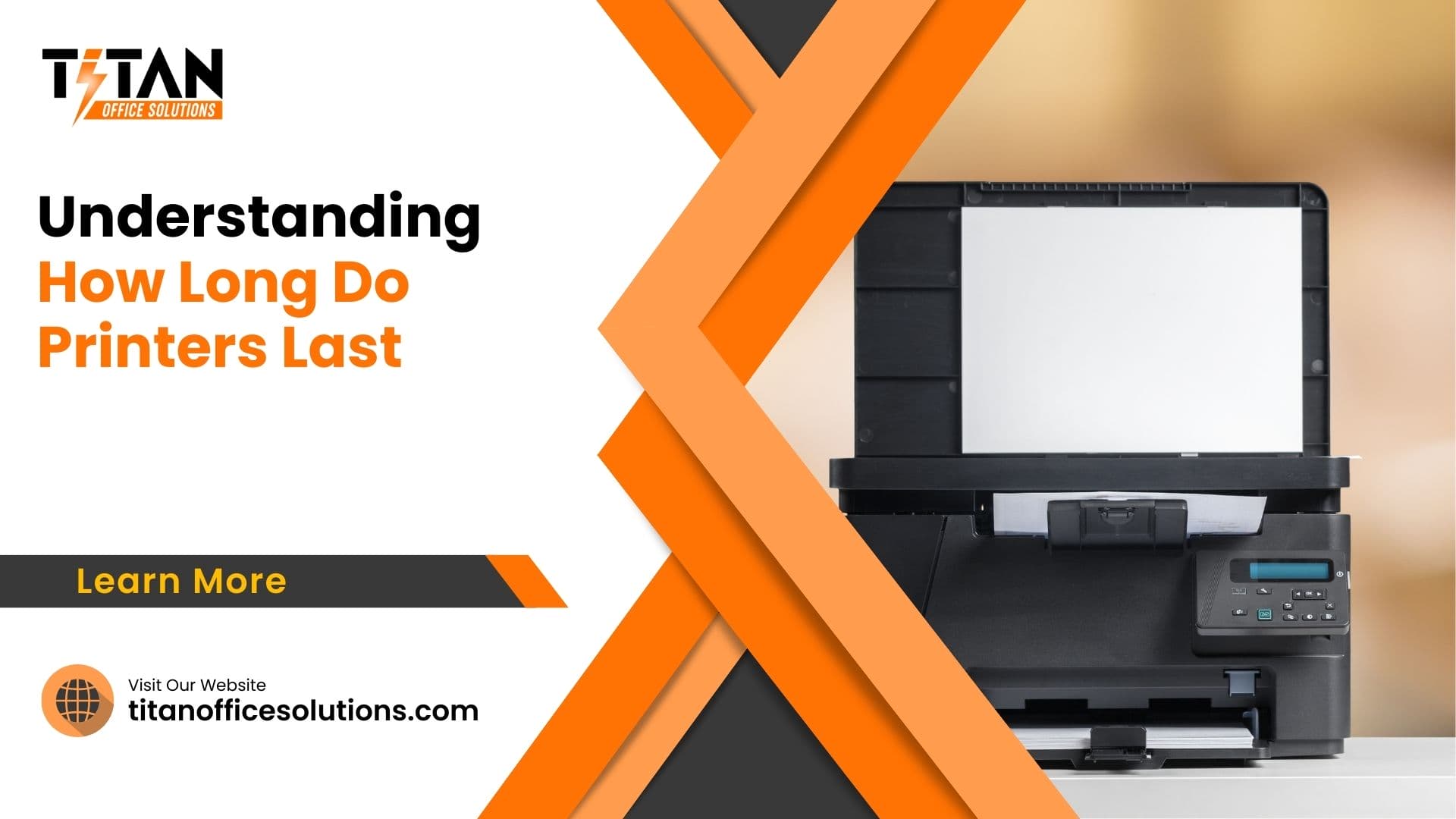How Long Do Printers Last
Understanding the lifespan of a printer is crucial for anyone looking to make an informed purchase or get the most out of their current device. The longevity of a printer depends on several factors, including its type, how often it’s used, and how well it’s maintained. Knowing these factors can help you extend the life of your printer, ensuring it serves you well for years to come.
After all, nobody wants to be in the position of having to buy a new printer sooner than necessary. Therefore, a deeper insight into what affects a printer’s lifespan and how to make it last longer is not just useful but essential.
Factors Affecting Printer Lifespan
Types of Printers (Inkjet vs. Laser)
The type of printer you choose can significantly influence its lifespan. Inkjet printers are known for their ability to produce high-quality prints, especially when it comes to photos. However, they might not last as long as their counterparts. Laser printers, on the other hand, are celebrated for their durability and efficiency, especially in office settings where print speed and volume matter.
For instance, a laser printer can generally handle more prints and has a longer lifespan compared to an inkjet printer. In other words, if your primary concern is longevity and volume, a laser printer might be the way to go. However, for high-quality photo prints, inkjets are still king. Above all, choosing the right type of printer based on your specific needs is paramount.
Usage Frequency and Volume
The frequency and volume of use have a direct impact on a printer’s lifespan. Heavy usage can lead to wear and tear, significantly reducing the lifespan of a printer. Conversely, light use might not necessarily ensure your printer will last forever, but it can extend its useful life.

For those who print frequently, it might be time to buy a new printer sooner than those who print less often. Regular maintenance becomes even more crucial under heavy use to ensure the printer lasts as long as possible.
Maintenance and Care
The importance of regular maintenance cannot be overstated when it comes to extending the life of your printer. Using high-quality printer ink and toner cartridges can prevent damage and maintain print quality over time. Similarly, regular cleaning and servicing can keep your printer running smoothly, preventing issues that could shorten its lifespan.
For example, replacing ink cartridges before they dry out can prevent clogging and damage to inkjet printers. In addition, using the right type of paper and ensuring the printer is kept in a clean, dust-free environment can also make your printer last longer.
The longevity of your printer hinges on the choices you make before and after your purchase. Whether it’s deciding between an inkjet or a laser printer, understanding the volume of printing you’ll be doing, or committing to regular maintenance, each factor plays a pivotal role in the average lifespan of your device. Therefore, investing a little time and effort into maintaining your printer can pay off in the long run, delaying the time when buying a new one becomes necessary.
How to Prolong Your Printer’s Life
Maximizing the lifespan of your printer not only saves money but also reduces environmental waste. Here’s how you can ensure your printer serves you well for the longest time possible.
Choosing the Right Printer for Your Needs
The first step in prolonging your printer’s life is selecting the right one. Aligning the printer’s capabilities with your needs is crucial. For instance, if you need a printer for high-volume office printing, a durable laser printer might be more suitable than an inkjet.

Conversely, for high-quality photo prints at home, an inkjet could be preferable. This alignment ensures that the printer is not overworked or underutilized, both of which can affect its lifespan.
Regular Maintenance Tips
Regular maintenance is the key to extending the life of your printer. Here are several tips:
- Cleaning: Keep your printer clean from dust and debris, which can cause jams and affect print quality. Use a soft cloth to gently wipe the exterior and follow the manufacturer’s instructions for internal cleaning.
- High-Quality Supplies: Always use high-quality ink and toner cartridges. Cheaper alternatives might save money in the short term but can clog your printer and degrade print quality over time.
- Avoiding Overuse: Don’t push your printer beyond its limits. Understand the monthly page volume your printer is designed for and try to stay within those limits to avoid undue wear and tear.
Preventing Overheating
Ensure your printer is in a well-ventilated area to prevent overheating, which can significantly shorten its lifespan. Keep it away from direct sunlight and consider turning it off when not in use for extended periods. Some printers also feature built-in cooling systems or sleep modes to manage temperature effectively.
Recognizing When It’s Time for a New Printer
Even with the best care, a time comes when replacing your printer is more sensible than holding onto the old one. Here’s how to recognize that time.
Signs of Wear and Tear
Common signs that your printer needs to be replaced include consistent paper jams, poor print quality, and unusual noises during printing. These issues often indicate that the printer’s internal components are worn out beyond repair.
Technological Obsolescence
Technology evolves rapidly, and what was cutting-edge a few years ago may now be obsolete. If your printer lacks essential features that could improve efficiency or compatibility with new devices, it might be time for an upgrade.
Cost-Benefit Analysis of Repair vs. Replacement
Sometimes, the cost of repairs can exceed the value of the printer. If you’re facing expensive repairs, compare the cost against purchasing a new printer with more advanced features and a new warranty. Often, replacement is the more economical and practical choice.
What People May Also Ask
Why do inkjet printers still exist?
Despite their inefficiencies, inkjet printers offer unbeatable print quality for photos and are affordable for home users.
How long should ink cartridges last?
The lifespan of ink cartridges varies but typically, they should last for several hundred pages, depending on printer usage and print settings like draft mode.
Is it worth repairing a printer?
This depends on the printer’s age, the cost of repairs, and whether newer models offer significantly better performance or features.
How often should a printer be serviced?
Annual servicing is recommended for most printers, especially if used frequently. This can help prevent issues and extend the printer’s lifespan.
Conclusion
Ensuring the longevity of your printer comes down to choosing the right model, maintaining it properly, and recognizing when it’s more sensible to replace rather than repair.
By following these guidelines, you can enjoy reliable printing while getting the most value out of your investment. Whether for home or office use, a well-cared-for printer can significantly enhance your productivity and efficiency, proving that a little care goes a long way in extending the lifespan of your printer.
Titan Office Solutions
Phone: (704) 741-0821
Email: info@titanofficesolutions.com
Hours of Operations: Monday through Friday from 8:30 AM to 6 PM EST.
Website: titanofficesolutions.com

